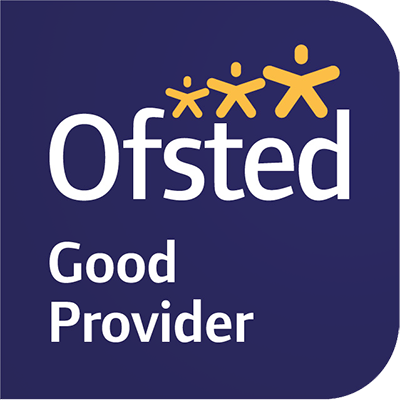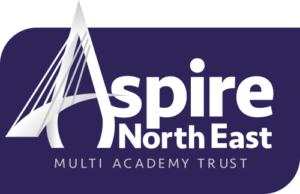Design Technology Curriculum Overview
Learning Journey
Knowledge Organisers
-
Key Stage 3 Food Key Stage 3 Resistance Materials
Key Stage 3 Textiles
Key Stage 4
-
Key Stage 3 Food Key Stage 3 Resistance Materials
Key Stage 3 Textiles
Key Stage 4
-
Key Stage 3 Food Key Stage 3 Resistance Materials
Key Stage 3 Textiles
Key Stage 4
-
- Food
- Resistant Materials
- Textiles
- Engineering (KS4)
- Hospitality & Catering (KS4)
- Aiming high, staying positive and resilience
- Communication skills (listening, speaking, presenting)
- Teamwork and problem solving,
- Creativity and thinking skills
- Self-management and leadership
- The children must take the views and opinions into account but still have the right to make their own choices.
- To take turns both in speech and practically with others.
- To understand that it is not always possible or right to have their own way and understand the value of compromise.
- To understand the importance of safety rules when using tools.
- To understand and accept that if these rules are not followed that there are consequences to this.
- To understand that there are able to listen to others but can use their own ideas and design choices when making an artefact.
- To accept that others' ideas may not be the same as their own but are able to accept this.
- To tolerate ideas from others that are different to their own.
- To understand that many great design ideas originate from other cultures.
- To listen to and consider the ideas and opinions of others even if they differ from your own.
- To be able to take turns during discussions to resolve difficulties or make decisions.
- To offer supportive comments in evaluations that will improve learning outcomes in a way that is objective but sensitive to the listener.
Key Stage 3
Our Key Stage 3 Curriculum:
We know that students who read well achieve well. As such all subject areas are committed to providing regular opportunities to read extensively. We provide regular opportunities for students to read as part of the research process.
Download the full policy at the link above for a full break down of learning for each Term.
Key Stage 4 Curriculum
Our Key Stage 4 Curriculum:
At Key Stage 4 students follow the OCR Engineering course and WJEC Hospitality & Catering course. Both are vocational courses with coursework and exam elements.
Download the full policy at the link above for a full break down of learning for each Term.
Aim
Here at Sandhill View Academy, we aim to securely equip all of our students for life beyond school as successful, confident, responsible and respectful citizens. We believe that education provides the key to social mobility and our curriculum is designed to build strong foundations in the knowledge, understanding and skills which lead to academic and personal success. We want our students to enjoy the challenges that learning offers. And ultimately we want students to ‘Know More, Do More and Go Further’
Our aims are underpinned by a culture of high aspirations. Through developing positive relationships, we work towards every individual having a strong belief in their own abilities so that they work hard, build resilience and achieve their very best.
Intent
The curriculum includes formal teaching through subject areas, assemblies and extracurricular activities. We regularly review content to ensure we continue to meet our curriculum aims. The DT curriculum is planned to enable all students to develop substantiative curriculum knowledge and skills in the following areas:
Throughout our programmes of study, every attempt is made to make explicit links to careers and the world of work. In addition to subject specific links, we aim to explicitly reinforce the skills and aptitudes which support employers say are important in the workplace;
The DT department ensure that students can develop skills that are useful in the world of work including teamwork, communication, creative thinking and problem-solving skills. The promotion of the importance of the creative careers and its impact in the local economy is included in lessons and information is displayed throughout the department. We refer to a wide range of job opportunities and careers within our schemes of learning and help students to understand a range of qualities and skills needed in different DT career paths.
British Values
The British values of democracy, the rule of law, individual liberty, and mutual respect of those with different faiths and beliefs are taught explicitly and reinforced in the way in which the school operates. Students are taught to maturely debate and discuss contemporary issues such as environmental impact of the DT industry. Students are aware of how artists explore identity and are respectful of others’ views. They are considerate when creating designs and models, understanding the responsibility they have.
Democracy
The Rule of Law
Individual Liberty
Tolerance
Mutual Respect
Covid Recovery to 'Unlock Learning'
We have built Covid Recovery into our long- and short-term planning by including Jump In (connect) activities to encourage deeper thought and debate in lessons and are continually updating these with relevant topics to reflect both contemporary culture and historical events. We have ensured that all planning addresses gaps in both skills and discussion techniques for all year groups, to not only improve on techniques but also creative thinking skills in order to create design responses. The vocational route of our KS4 courses is reflective of our students way of learning and is designed to offer most of the coursework assessment. This helps break knowledge into smaller units and students are guided through coursework tasks at their own pace. We have focused on embedding a range of practical skills in KS3 as this was an area which was impacted during covid as students were unable to develop their fine motor skills when working online. Students also missed out on learning how to use equipment and developing their practical skills in technology as this was not permitted for a long time due to social distancing in school.
Literacy
We know that students who read well achieve well. As such all-subject areas are committed to providing regular opportunities to read extensively. In DT we provide opportunities for students to read as part of connect activities and within the classroom environment with a larger focus on this particularly with research in order to develop independent projects.
We also have aspirations for our students to use ambitious vocabulary and are using Frayer models and keyword definitions in lessons. We have used the whole school approach of SMART reading and writing apps and will develop these for any new projects in DT. All curriculum areas use literacy end point document which details yearly end points for reading, writing and oracy to ensure consistent literacy skills embedded across the curriculum.
Sequence and Structure
Our curriculum is covered in Key Stage 3 (years 7, 8 and 9) and Key Stage 4 (years 10 and 11).
Skills Builder
We are also explicitly embedding transferable ‘Skills Builder’ skills such as problem solving, aiming high and teamwork to prepare our students for higher education and employability skills for the future. In DT we will focus on Creativity,Aiming High and Leadership. Our young people have demonstrated that taking part in creative activities both in and outside of the classroom can not only boost their self esteem but they can also help others. We encourage our young people to teach skills to others and work together to learn about different cultures and events through discussion and group work. Projects from Year 7 upwards have been designed to creatively explore a variety of materials but also to refine skills to aim high to take pride in not only their finished products but also to the process displayed in their books.
How does our Curriculum cater for students with SEND?
Sandhill View is an inclusive academy where every child is valued and respected. We are committed to the inclusion, progress and independence of all our students, including those with SEN. We work to support our students to make progress in their learning, their emotional and social development and their independence. We actively work to support the learning and needs of all members of our community.
A child or young person has SEN if they have a learning difficulty or disability which calls for special educational provision to be made that is additional to or different from that made generally for other children or young people of the same age. (CoP 2015, p16)
Teachers are responsible for the progress of ALL students in their class and high-quality teaching is carefully planned; this is the first step in supporting students who may have SEND. All students are challenged to do their very best and all students at the Academy are expected to make at least good progress.
Specific approaches which are used within the curriculum areas include:
- Differentiated and feedback tasks outlined clearly on the board or in teaching resources
- A variety of techniques, processes and materials are taught in DT covering forms such as research, analysis, designing, evaluating and a variety of making skills across three areas: food, textiles and resistant materials.
- Work and discussion tasks to develop confidence in presentation and literacy skills
- Work is always uploaded onto TEAMS for absent students to work on outside of the lesson
- Technician support is available for students who need extra help in practical lessons
How does our curriculum cater for disadvantaged students and those from minority groups?
As a school serving an area with high levels of deprivation, we work tirelessly to raise the attainment for all students and to close any gaps that exist due to social contexts. The deliberate allocation of funding and resources has ensured that attainment gaps are closing in our drive to ensure that all pupils are equally successful when they leave the Academy. More specifically within the teaching of DT we;
- We aim to provide not only a space to teach technical skills in Design & technology in order to build a sense of pride, resilience and creativity; but also a space where young people feel safe and comfortable to express how they feel about their society and what is happening in their world, whilst also developing empathy and understanding to others. Our subject encourages students to think creatively and develop transferable skills such as critical thinking, imagination and problem solving to equip them to lead in life beyond the classroom.
- We ensure all students are equipped with the tools and materials needed for each project area in DT including ingredients provided in Food.
- We aim for GCSE results to show no or little gap in attainment for disadvantaged students in comparison to those that are not due to the accessible nature of our creative approach to teaching.
How do we make sure that our curriculum is implemented effectively?
- The DT curriculum leader is responsible for designing the DT curriculum and monitoring implementation.
- The subject leader’s monitoring is validated by senior leaders.
- Staff have regular access to professional development/training to ensure that curriculum requirements are met.
- Effective assessment informs staff about areas in which interventions are required. These interventions are delivered during curriculum time to enhance pupils’ capacity to access the full curriculum.
- Curriculum resources are selected carefully and reviewed regularly.
- Assessments are designed thoughtfully to assess student progress and to shape future learning.
- Assessments are checked for reliability within the department and across the Trust.
How do we make sure our curriculum is having the desired impact?
- Examination results analysis and evaluation, reported to the senior leaders and the local governing body to ensure challenge
- Termly assessments-analysis and evaluation meetings
- Lesson observations
- Learning walks
- Book scrutiny
- Regular feedback from Teaching Staff during department meetings
- Regular feedback from Middle Leaders during curriculum meetings
- Pupil surveys/student voice
- Parental feedback
- External reviews and evaluation




